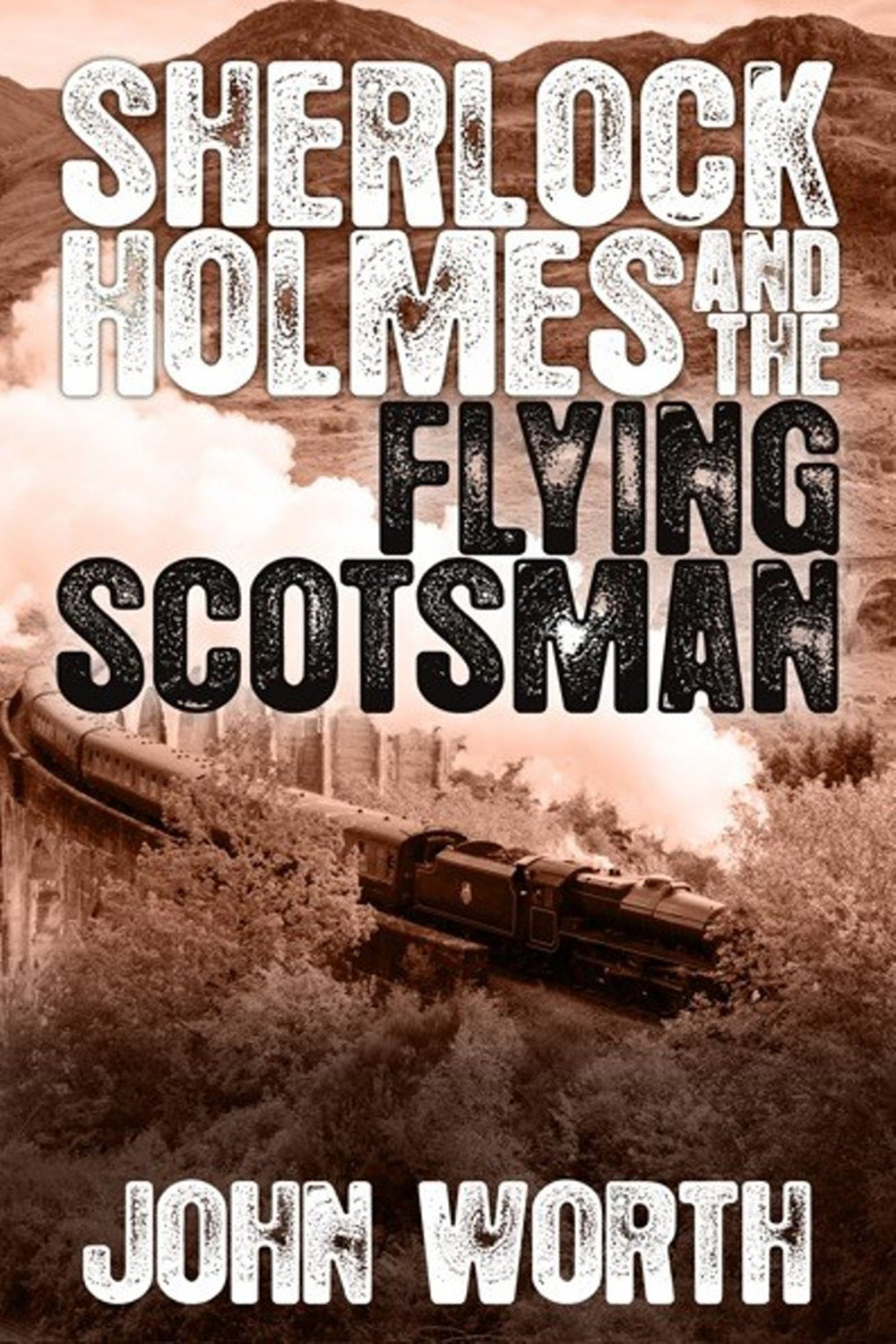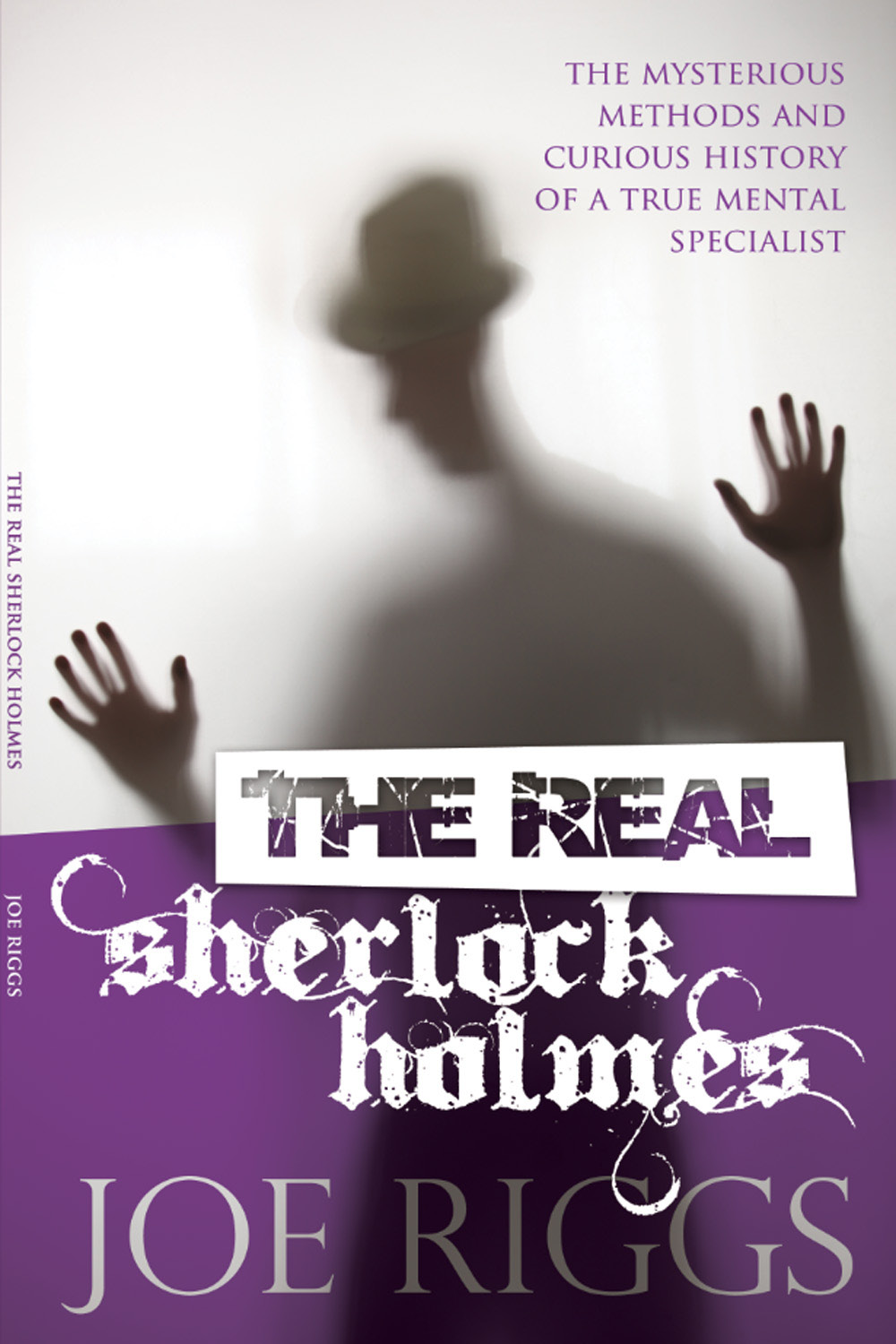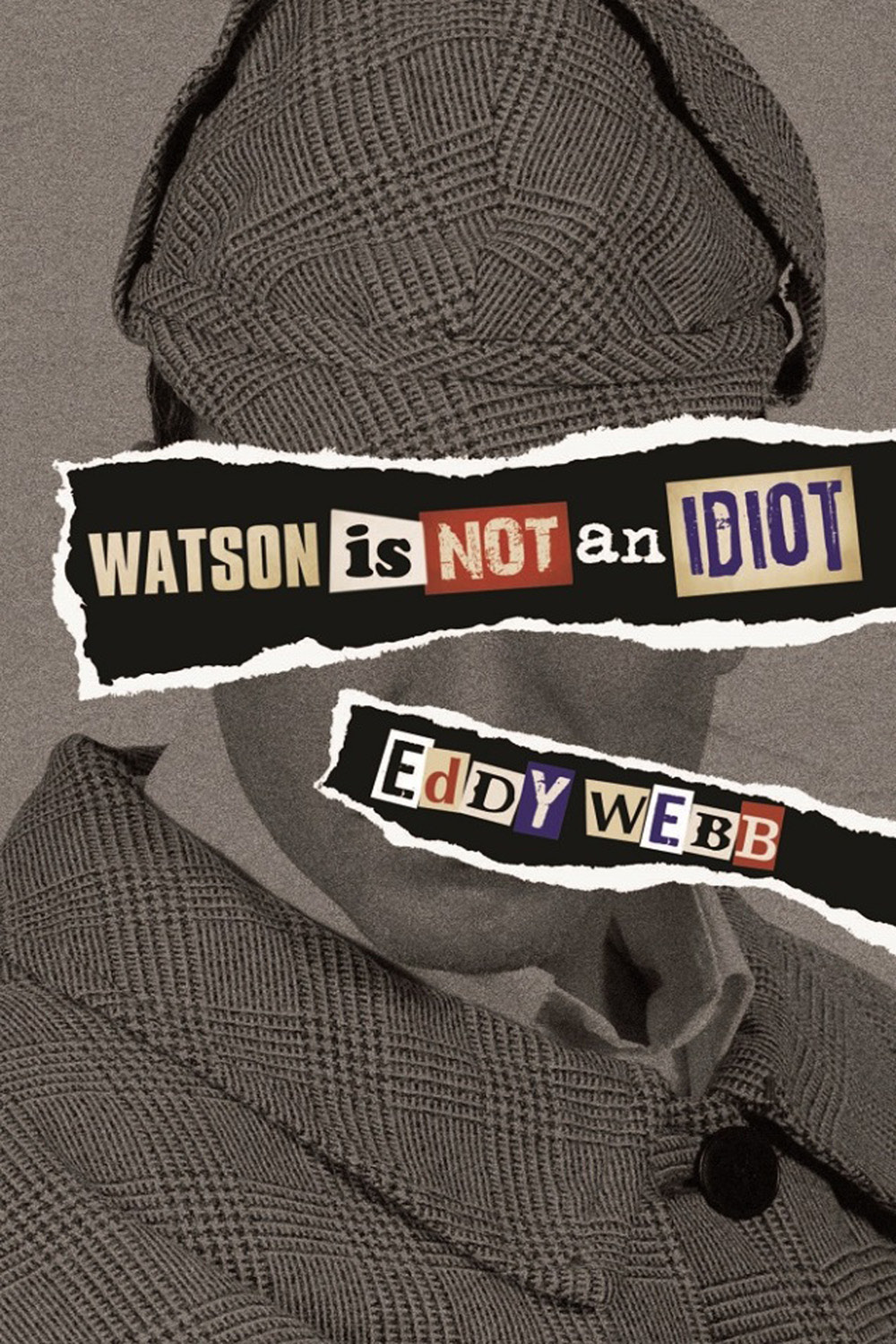Sherlock Holmes and the Adventure of the Tainted Canister (4 page)
Read Sherlock Holmes and the Adventure of the Tainted Canister Online
Authors: Thomas A. Turley
Tags: #Sherlock, #Holmes, #mystery, #crime, #british, #novels, #short fiction, #murder, #detective, #Watson, #Mary

He laughed at me incredulously. “You really
are
mad, aren't you? I'd never realized it before. Well, get out, then. It's hardly in my interest to stop you. What are you waiting for?”
“For you to go to bed.”
“You mean right now, before you've left?” Perhaps it was a glimmer of foreboding that caused his sneer to fade. “What for?”
“For my amusement. I may as well get something for my efforts as a housebreaker.” At that, I reached into the pocket of my coat and drew out my revolver, an Eley's No. 2. “Get into the bed, Richard.”
He knew then, although no doubt he simply expected me to shoot him. His hands trembled slightly when he took off the dressing gown; but he nodded to me, as though in resignation, and slipped beneath the turned-back sheets.
The scream was instantaneous, but fortunately not prolonged or loud. Dr. Richard Anstruther had encountered the other occupant of his final resting place. It was a swamp adder, the deadliest snake in India. He died within ten seconds of being bitten. For the rest of my long life, I have tried to convince myself that it was as merciful a death as he deserved.
After my interview with Lestrade the next day, I wrote a note to Sherlock Holmes, to be delivered upon the night of his return. It stated briefly that my friend Anstruther had just died under questionable circumstances, and that Scotland Yard desired him to examine the scene of death as soon as possible on Thursday. I added only that I would wait for him that evening in our rooms in Baker Street. It shames me now to write how much I quailed before the prospect of facing my friend as a malefactor.
It was shortly after four o'clock when I arrived. For half an hour, I was a distrait and graceless host to Mrs. Hudson, who, when she finally left, was no doubt as bewildered as I was. Darkness had fallen by the time that Holmes returned. After one quick glance in my direction, he lit the lamp (which I had neglected), took a pipeful of tobacco from the Persian slipper, and fell into the chair opposite my own. When his pipe was drawing well, he commanded simply: “Tell me.” So I told my friend how I became a murderer, much as I have told it here.
When I had finished, Holmes sighed deeply, but he continued sitting in a silence that I found interminable. The words that finally passed his lips were his own epitaph for another murderous physician.
“'When a doctor goes wrong, he is the first of criminals. He has the nerve, and he has the knowledge.' My compliments, Watson. You really did it very well.”
Many times over the years, I had hoped for words of praise from Sherlock Holmes, but these were unendurable. I could not answer him. So I merely sat and listened, as wretchedly self-contemptuous as I have ever felt, while he began to dissect my performance.
“It was unexpectedly clever of you to wear Anstruther's slippers. A good thought, that, although ultimately it was ineffective as a blind. Upon examining the victim's body, I was able to determine that his slippers did not conform precisely to his feet. And to anyone who really knows you, Doctor, that inward turn of
your
left foot (the result of your old war wound) is readily apparent, regardless of howâor whetherâyou are shod.”
“I know.” Somehow, I managed to choke out a response. “I did try to sit as much as possible.”
“Well, no matter. Most investigators would not have noticed it. Lestrade, I can assure you, has no more than a suspicionâand certainly no proofâthat Dr. Anstruther was not alone in the bedroom where he met his end.”
“I am relieved, though not surprised, to hear it.”
“Still, I could not tell just
how
you had done it until I saw the body. The police had removed it from the houseâthat was necessary to ensure its preservationâbut upon Lestrade's instructions they had postponed the autopsy until after my examination. Thanks be to God, I have taught that man
something
over these past years.
“A look of horror, Watson, was still upon Anstruther's face. It recalled so forcefully the terrible visage of Dr. Grimesby Roylott that I divined immediately what you had done. Moreover, the serpent's fang-marks were still visible upon the left foot of the corpse, once I knew to look for them, and there was also some discoloration of the tissue. It is most fortunate for you that Lestrade's medical examinerâ“
“Davies,” I interjected. “Yes, I was rather counting on him.”
“Well, he is evidently as much an ass as his employer. I am not certain that he would have recognized a python wrapped around the victim's neck.
“But you could not fool
me
, Watson,” chided Holmes, shaking an admonitory finger. “Just to make assurance double sure, I followed your tracks to Pinchin Lane this afternoon. Old Sherman confirmed that you had borrowed and returned the Roylott adderâhe was curious to learn what I had wanted with itâand I knew that I had made my case.”
“Yes, Holmes,” I acknowledged, “as you so often do. But now I must ask what you intend to do with your solution. Naturally, I shall accept you as my judgeâyou have done as much for other criminals that we have caught togetherâbut this time I am debarred from my usual role as juror. I must stand mute, my lord, and await your verdict.”
Sherlock Holmes was silent for even longer than before. He sat and inhaled his stimulative tobacco, while I devoutly hoped that mine would not prove to be a three-pipe problem. When he finally answered, it was with words I would recall one day when writing of another of his cases.
“I have never loved,” said Holmes. “But
if
I loved, and if the woman whom I loved was killed in such a way, and by a man whom she had valued as a friend and suitor; if that same man by killing her had also robbed me of the prospect of a son and heir; thenâyesâI think I might have done as you have done. It is difficult for me to say, Watson. As I have told you, all emotion is abhorrent to me, and I have never loved.
“But I do know, Doctor, that I missed your help and counsel during my three lost years of wandering more than I can ever say. I would rather have my friend beside me, here in Baker Street, than to bring another murderer to justice. What is justice? What is law? In our imperfect world, it can hold no remedy for such a case as yours. So Godâif He existsâmust judge you, Watson, for I find that I cannot. My dear fellow,” he concluded sadly, “I know you well enough to know that you will judge yourself.”
And so I have. For the question that I failed to ask, in deciding to kill Richard Anstruther, is what Mary would have wanted. In my remorse, as in my actions, I am no better than the man I murdered; and remorse for actions taken in cold blood may offer little mitigation in the eyes of Heaven. Yet, if I have been permitted to escape the earthly consequences of my crime; and to lead a productive, full, and even honoured life; then let me now, at the end of it, reveal my guilt within these pages and add one last, terrible chapter to these chronicles of my devoted friend.
I trust that in so doing, I shall cast no shadow on his fame. Sherlock Holmes always insisted that he was not retained by the official police to supply their deficiencies. He lived and worked by his own standards; and while those standards may occasionally have been tempered or suspended, they were always in accordance with the dictates of his heart. For my friend possessed a nobler heart than he would ever have acknowledged, and even now I regard him as the best and wisest man whom I have ever known.
John H. Watson, M.D.
August 14, 1931
Also available



